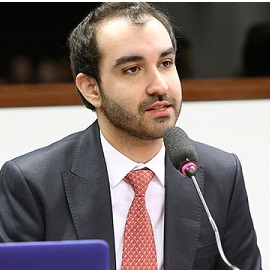– June 18, 2018 –
Interview granted by Prof. Dr. Dennys Antonialli of the Law School of Universidade de São Paulo and director of InterLab. The professor answers questions about the Law of Protection and Defense of the Rights of Users of Public Services, (Law 13.460).

Law 13,460 ensures the participation of citizens in the periodic evaluation of public services. How is this participation publicized? What institute does this auditing?
Law no. 13,460 establishes mechanisms to increase the possibility of citizens´ participation in monitoring the provision and evaluation of public services, such as users´ councils and ombudsmen. However, the effectiveness of these mechanisms depends on the adoption of communication strategies and engagement with public service users, who need to be aware and motivated to participate. If not accompanied by publicity campaigns and awareness of the role of the citizens in improving public services, the creation of these channels can mean few advances. Moreover, if created as empty instances, with little or no deliberative power and without guarantees that the vocalized demands are determinant for the action of the public managers, in a short time, they will be abandoned by the population, becoming, possibly, mere formal instances of illusory participation. Rather than thinking of creating new mechanisms able to audit the implementation of the instances of participation, in the view of the law, it is necessary to give them more robust competencies and to ensure that the population has access to them. With this, the impact of Law no. 13,460 will be more likely to be higher.
The law applies in a subsidiary manner to public services provided by private entities. How is this enforceability monitored?
Law n. 13,460 does not establish concrete mechanisms for its enforcement and monitoring. The idea seems to be that the law applies to the provision of public services and that the same participation mechanisms are created within their management structures. However, the way the Law is written, it seems illusory to believe that this will happen and that popular participation, if it exists, will not be reduced to the possibility of vocalizing demands that may simply be ignored.
What factors establish that the public service is delivered fully in a digital format?
There are no specific factors that define that. In the case of some public services, such as the demand for documents and certificates, for example, service provision and service channels on the Internet are important. However, this does not guarantee the quality of the service especially if we consider that a group of the society has access barriers. It is necessary to guarantee that the service is quick and efficient to all.
In your opinion, how can one demand that public entities establish a plan of measures to comply fully with the law?
One of the main limitations of Law no. 13,460 is not to offer mechanisms capable of addressing structural issues that contribute to poorly provided public services in Brazil, especially those related to management and budget. To promote changes in power structures and decision making, create forms of quick and efficient accountability to management failures and service provision and to give managers budgetary conditions to implement improvements are central. Without these measures, the channels of participation established by the law will not be able to achieve very significant advances.
 English
English Português
Português
